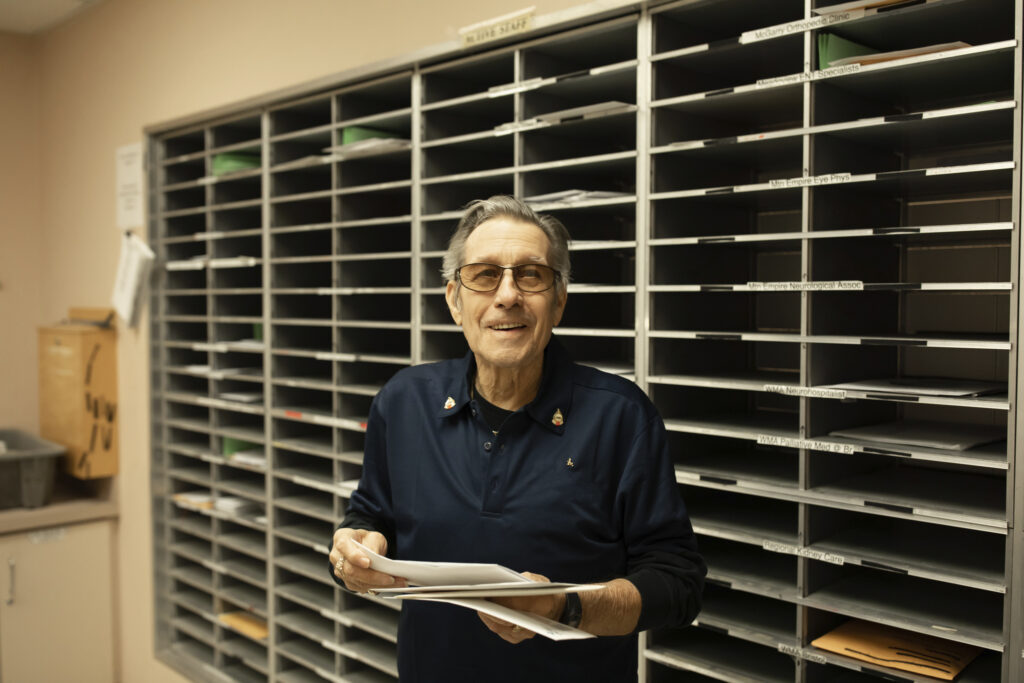The Legacy of a Giving Volunteer

As a longtime blood donor since 1990, Bruce Higley got to know the team at Marsh Regional Blood Center pretty well, enjoying his chats with the staff while he made his donations. During that time, Bruce often heard team members refer to the “Amicus,” a machine in the corner of the room.
Eventually, his curiosity became too great and he had to ask what it was for. That’s when he learned about apheresis, a medical procedure that removes whole blood from a donor, separates the blood into components that can be collected, and then returns the remaining blood back into the donor. The team used this machine for platelet donations, which often benefit those fighting cancer or autoimmune disorders.
When Bruce learned that platelet donations benefit patients with cancers, he knew what he wanted to do. At that moment, Bruce decided to become a regular platelet donor in memory of his wife, who had died of cancer.
“Platelets aren’t like whole blood when it comes to shelf life,” Bruce said. “Whole blood goes on the shelf for when a surgical patient or accident victim needs it. Platelets only have a five-day shelf life. And there’s such a need, someone is always waiting for it. As soon as it goes through the lab to be processed, it goes to a burn victim or cancer patient.”
The donation process for platelets can take up to two hours, so it requires a bigger time commitment than donating whole blood, but that never bothered Bruce. “It’s a fantastic program. And I never got bored. They take such good care of you, bringing drinks and snacks and the remote control to the TV. Marsh Regional has really good people who stay with you and pay attention to your needs,” he said.
Unfortunately, Bruce eventually developed cancer himself and could no longer donate. Despite this, he still regularly dropped by to say hello to the staff, often bringing sausage biscuits or other treats.
Until the end of his life, Bruce still served as an unofficial ambassador for platelet donation. Over the years, he earned Marsh T-shirts and hats, some of which mentioned platelet donation. When people would ask him what it was, he was always happy to talk to them for as long as they’d listen, urging them to become donors.
Bruce even dedicated himself to finding just the right fleece jacket to have a friend embroider a custom design about platelet donation, so he could wear it to work at Bristol Regional Medical Center and serve as a walking advertisement for new donors.
“I just wanted to do something good. And I always felt better after donating platelets,” he said. “My whole system felt better. It’s a good feeling to have the saline going through my body as the blood is being taken out and returned. If you like being pampered and catered to, go to Marsh Regional and donate platelets. They’ll wait on you hand and foot.”
Bruce kept up that passion for saving lives and generating blood or platelet donations until he passed away. His family, friends and community miss him every day, but they’re happy that he left behind something larger than himself – a legacy of saving lives.
If you’re interested in learning more about donating platelets, you can visit our platelet donation page.

